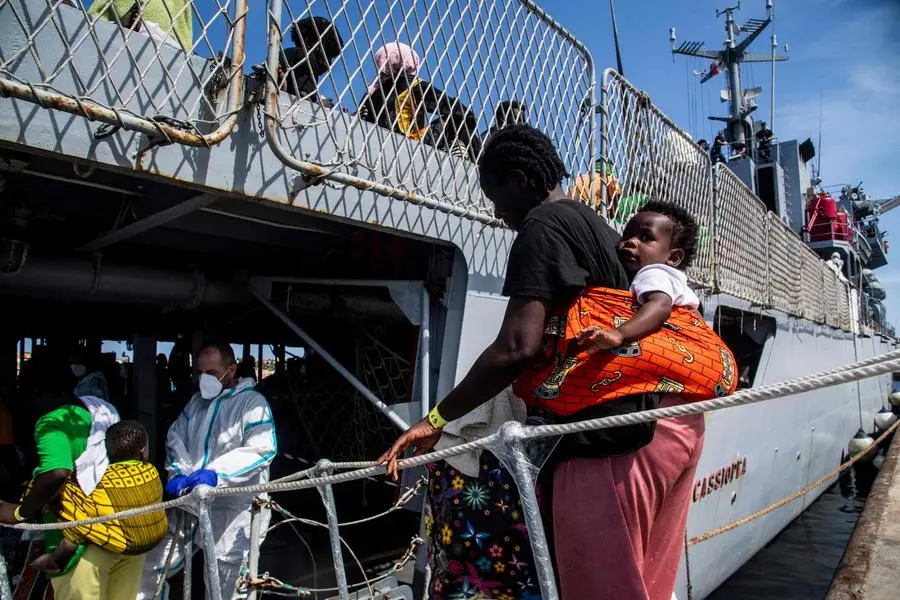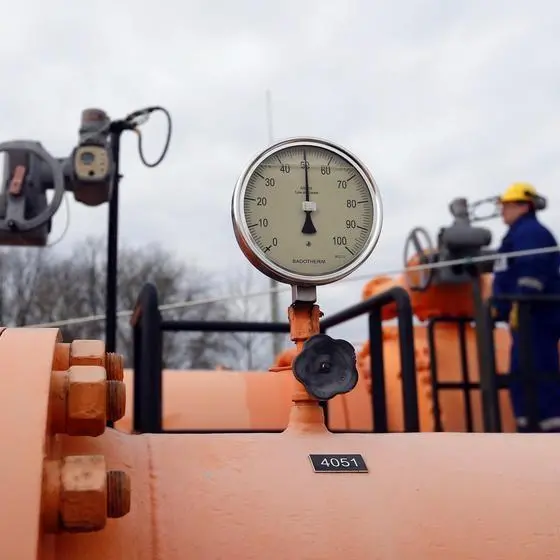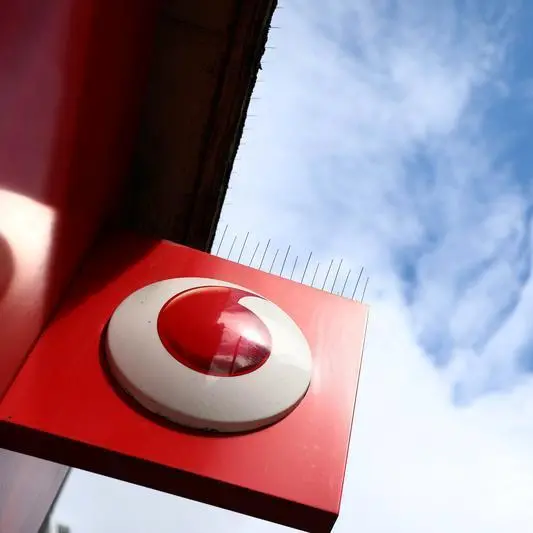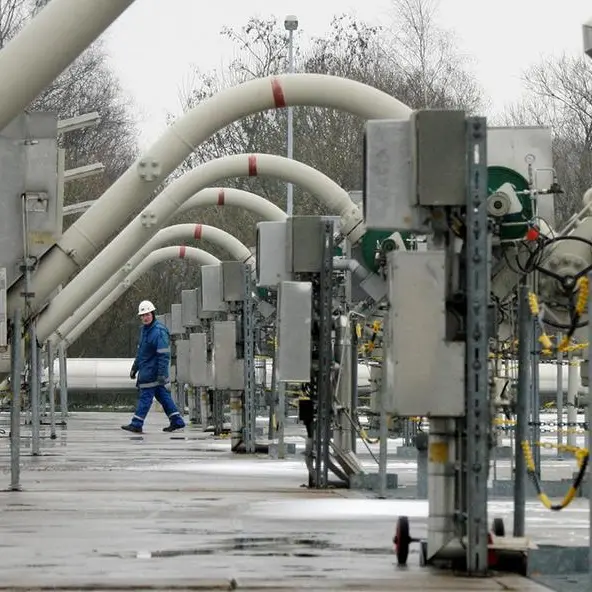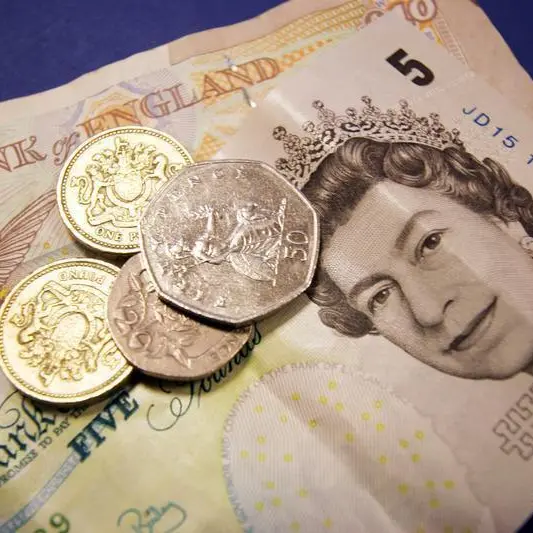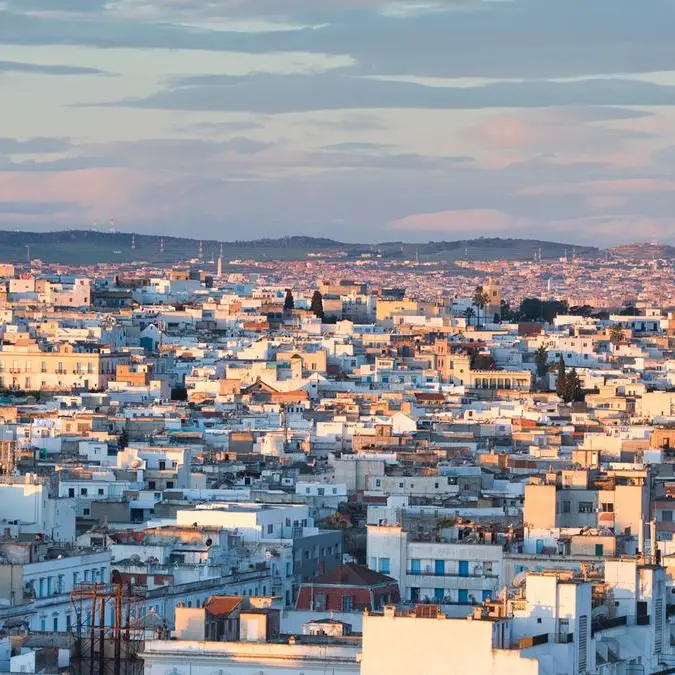PHOTO
Italian Prime Minister Giorgia Meloni called on Brussels to help relieve the "unsustainable" pressure on the country, as officials transferred thousands of migrants from the tiny island of Lampedusa to Sicily Friday.
The transfers followed record surge in arrivals that has rekindled the debate over how Europe shares responsibility for asylum seekers.
Lampedusa, just 90 miles (145 kilometres) off the coast of Tunisia, has long been a landing point for migrant boats from North Africa. But this week its migration centre -- built for fewer than 400 people -- was overwhelmed.
Between Monday and Wednesday, around 8,500 people -- more than the entire local population -- arrived in 199 boats between Monday and Wednesday, according to figures from the UN migration agency.
Images of thousands of people sleeping in the open air, scaling the perimeter fence and wandering around Lampedusa town sparked anger among members of Italy's hard-right government.
Deputy Prime Minister Matteo Salvini called the arrivals an "act of war", and on Friday, Prime Minister Meloni urged the European Union to do more to tackle the problem.
"The migratory pressure that Italy has been experiencing since the beginning of the year is unsustainable," she said in a video message broadcast by her office on Friday.
The problem, sprang, she said, from the "difficult international situation" in Africa.
She urged European Commission President Ursula von der Leyen to visit Lampedusa, and asked European Council President Charles Michel to put the matter on the agenda of October's EU summit.
In Lampedusa meanwhile, men, women and children lined up in the sun to take buses and vans to the port.
From there, some prepared to board ships to the larger island of Sicily, where they will be transferred to migrant processing centres.
- Hot issue -
Mass migration is a key political issue in other EU capitals ahead of European Parliament elections next June.
In France, members of the far-right said the government should not allow any migrants from Lampedusa across the border -- to which President Emmanuel Macron responded by calling for European solidarity.
"I consider it the responsibility of the entire EU to stand alongside Italy," Macron said, adding that "strictly nationalist policies have their limits".
Germany earlier this week confirmed it had stopped accepting migrants living in Italy under a European solidarity plan aimed at easing pressure on EU border nations.
It was a "signal to Italy" after Rome last year suspended EU rules on accepting migrants, a German government spokesman said Friday.
Berlin could resume taking migrants "if Italy fulfils its obligations to take back refugees", the spokesman added.
- Fights over food -
Lampedusa's migrant centre has struggled for years to cope with the arrivals, with humanitarian organisations reporting a lack of water, food and medical care.
The Italian Red Cross took over in June, promising to provide a more "dignified" welcome -- but this week raised the alarm over the high numbers.
Many arrivals did not even make it inside the perimeter fence, instead camping outside.
Police had to intervene after scuffles Wednesday during the distribution of food.
"We are so many here," said a young man from Gambia, who gave his name as Omar, as he sat in the shade waiting for a bus to the port Friday.
"Even to eat food is a problem, there are so many people, when they start to give us food, there are always people, it's a problem... Always fighting, fighting."
Omar said he had been travelling for six months before making it to Lampedusa and hoped to reach his brother in the Netherlands.
"It's not easy," he said, opening a crumpled plastic bag containing a small piece of paper with his family's phone number written on it.
- Lunch for 5,000 -
The Red Cross said Friday morning that 700 people had been transferred off the island with another 2,500 due to leave during the day.
On Thursday, staff and volunteers provided 5,000 meals at lunchtime and again in the evening, it said.
Although most of the migrants arriving on Lampedusa are picked up at sea by the coastguard from rickety boats, many do not survive the journey.
More than 2,000 people have died this year crossing between North Africa and Italy and Malta, according to the UN migration agency.
More than 127,000 migrants have arrived on Italy's shores so far this year, up from more than 66,000 in the same period last year.
The numbers are still well below those of 2016, when more than 181,000 migrants arrived over the year.
